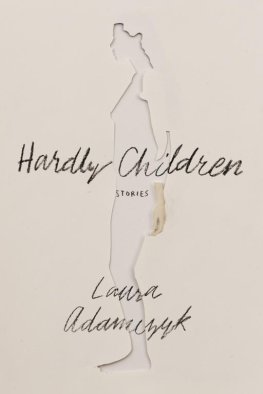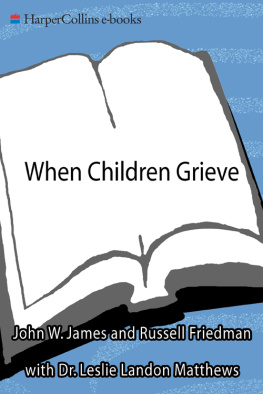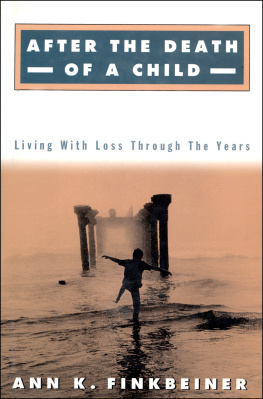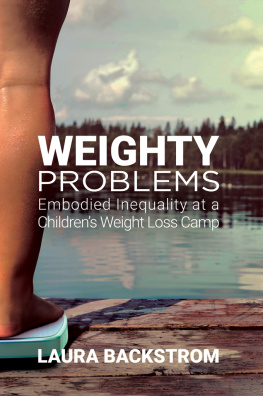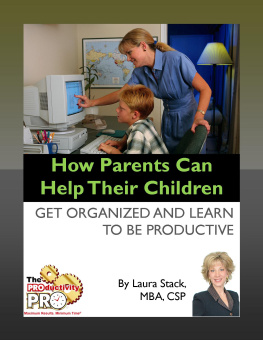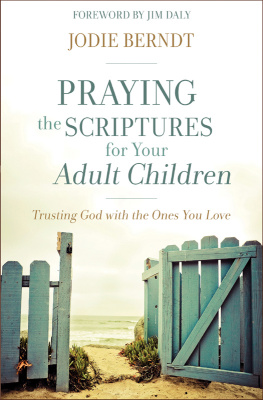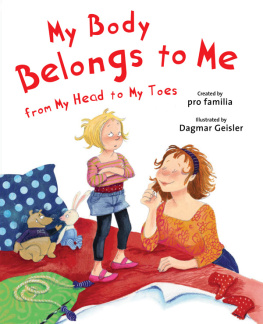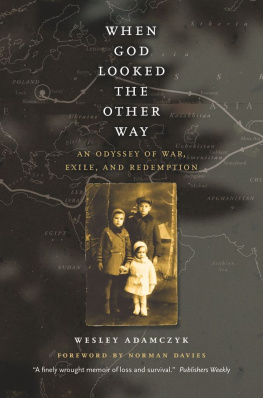Laura Adamczyk
HARDLY CHILDREN

IF ASKED, I WILL NOT say that I love children. Nor that I particularly do not love children. Im not one of those who yells at parents to keep a better eye out when their kids run into the street or push into my pelvis at the coffee shop. I will instead say, if asked, that I notice them aroundwhen Im on my way to work or returning from the storethat I see their presence, I know undeniably that they exist, but that I have no real opinion on them one way or the other. People will assume that, like all women my age, I must have strong feelings in this regard. But, to me, they are only smaller, more naive adultsdifficult to predict but easier to talk to.
This morning I saw the posters around the neighborhood. This is a medium-sized town. Not so small that I could tell you the names of my neighbors or they mine, which I never fully considered until now, but small enough that a parent could discover a problem with her son or daughter and then talk to a friend who knows a guy who is a retired sketch artist or who took an art class at the community college, and ask him to draw a picture and help staple copies of that picture to a few dozen telephone poles. This is how things can be handled here, though Ive never taken advantage myself. I dont talk much. I work in the back, as they say. And its true. This afternoon Im making a mound of chopped onions; later Im responsible for converting radishes into roses, the most creative thing Ill do all day. Though its nothing compared to putting pen to paper. The artist of the poster captured a familiar unkempt androgyny in his creations face. Eyes deep within sockets and high cheekbones, a sharp hollowness beneath. Have I seen this man? the poster asked. The skeletal face bones, the limp shoulder-length hair give it away. Ive never looked like a woman, but most adults figure it out eventually. In the meantime, Im keeping my distance. Im avoiding mirrors.
The other day at the park I was in the swings that are set away from everything elsethe jungle gym, the baseball field. As I pushed myself slowly with a foot on the ground, a boy approached and sat one over, pumping his legs lightly. It was a little boy who looked like a little girl. He wore white tennis shoes with pink swirls and a pair of teal gloves. Hed broken away from his friends who were running across the jungle gym bridge and squeaking up the metal slide, their screams ringing out wild and open like they were joyfully murdering each other. He asked me why I was swinging by myself and I asked him why he was swinging by himself. He dropped his legs, let his body go slack, then started pumping. I like to! he said. And then he went at it with vigor, as if to prove it to me. He had perfect form: knees together, toes pointed. Sometimes he threw his head back, letting his arms go straight. He was going at a nice pace when I said, Though sometimes it gets lonely, swinging by yourself. At first I didnt think he heard me, but then with jagged breath he said, You should just swing! And so I did, moving my legs, leaning my torso, back and forth, getting up to such a height that in each forward peak, before the slack chain went taut and gravity jerked back at me, I felt weightless, suspended. Then I mimicked his rhythm until we were synced uplegs mirroring legs; arms, arms. When he noticed, he cried out, Were married! , got in a few more good pumps, and jumped off the swing, landing cleanly in the spread of dirty pebbles below. I brought myself to a stop, then clapped.
Beautiful! I said. Ten points!
He smiled with the proud glee of a gymnast in her prime. He walked up to me, his mouth open in a breathless smile. Im going to go over there now, he said.
Whats your name? I asked.
Chad, he replied.
I put out my hand and he shook it once, twice, as though he went around shaking hands and introducing himself to folks all the time.
Nice to meet you, Chad, I said.
Nice to meet you, he said.
He was geared up, ready to run, so I asked as quickly but as delicately as I could: Chad, can I have a hug?
A hug?
Were married now.
Youre weird! he cried out, laughing.
Thats what everybody says. I turned my head down.
Oh, he said. His waning breath told me he was coming down from his excited peak. I kept my eyes on his shoes and let go a deep sigh. He must have come to some realization about adult loneliness and feeling, because those shoes stepped forward, and the boy in them opened his arms and then closed them on me like I were an old stuffed animal. I kept us there for as long as I could; he did not give any resistance. Theres no way to know, I think now, what was happening inside my body. I kept my hands at his back, holding as still as possible. There was a sense of one belonging to the other, a good sense. When I felt his arms easing away, I let him.
Head down, voice quiet, he asked, Are you a teacher?
I work in a restaurant, I said, feeling sick. My life was far away just then, but not far enough. Thats how I know that Ill have to answer some questions soon. About love. About how the opposite of desire is not hate, only the absence of desire. Before the boy walked away, I said, Keep doing what youre doing, Chad. Its not always good to become something else. He was only an arms length away, but it was like hed already turned his back to me.
Now I perform each action as though it might be interrupted. I stretch plastic over tubs of diced vegetables; I defrost shrimp in the refrigerator instead of the sink. I imagine them walking in quietly, only the squeak of leather, the tap of their polished shoes giving them away. If they cuff me, I wont resist. Ill shape my face into a mild, unreadable thing. But if they ask me to take a walk, to come with them and have a chat, Ill do what I have to dostiffen my body, turn my fingers into fists, anything to make them put their hands all over me.
IT WAS THE SUMMER our parents got divorced. Mary was five, I was eight, and Ronnie was ten. Five, eight, and ten. Even before Mom told us, the house entered a fevered statethe hot air thrumming, the walls damp with fuzzy moisture. She had a way of trying to keep my sisters and me from unpleasantness, and in those long, hot weekends, she would send us from the house. Girls, go ride your bikes , she said. Go play with the neighbors. The rich neighbor kids with their freckled noses and heads of thick, preppy hair, cut short and boyishthey ignored us, did not once invite us over. We viewed them as one might celebrities, as people who you recognized but who did not, in turn, recognize you. Around their property ran a tall white fence, and from our backyard we could hear them across the street splashing in their pool; we could see their heads popping up above that fence as they leaped from the diving board into the water. For me, the scenes taking place inside that yard were central, real, and whatever was happening inside our homeMom closing the front door despite the heat, Dad talking fast and sharp into her earwas the thing keeping us on the other side of their fence.
Our dad was a drinkera drinking man, I would overhear my mom sayand during his last weeks before leaving, he drank more. I remember but one night from this time. Mom was working late at a dentists office an hour out of town, and Dad was in the living room recliner, tilting his head back to drink from a can of beer, then setting it down on the side table. His drinking seemed to coordinate with the setting of the sun: one gold can and then another disappearing, the light outside moving from blond dusk to dark. I felt uneasy, but couldnt say why. We were doing just what we always didRonnie and Mary and I sat drawing quietly at the dining room table, looking up from time to time to the TV in the other roombut our movements felt slow and intentional, as men floating weightlessly in space.

